U.S. Drone Regulations
Penalties for Drone Operators Non-Compliance in the U.S.
Published
1 year agoon
Table Of Contents

Penalties for Non-Compliance
Non-compliance with drone regulations can lead to significant penalties, including fines, legal action, and operational restrictions. Both recreational and commercial drone operators must adhere to federal, state, and local laws to avoid these consequences. This section details the potential penalties for violating drone regulations and provides examples of enforcement actions.
Federal Penalties
The FAA enforces regulations to ensure the safe and lawful operation of drones in U.S. airspace. Violations of these regulations can result in severe penalties, including:
Fines:
- Civil Penalties: The FAA can impose civil fines for violations of Part 107 regulations, including unauthorized flights, failure to register a drone, or operating in restricted airspace. Fines can range from $1,000 for minor infractions to $27,500 for more serious violations.
- Criminal Penalties: In cases of willful or reckless disregard for safety, criminal penalties may apply. These can include fines of up to $250,000 and imprisonment for up to three years.
Certificate Action:
- The FAA has the authority to suspend or revoke a Remote Pilot Certificate if an operator is found to be in violation of regulations. This can impact an operator’s ability to legally conduct commercial drone operations.
Warnings and Letters of Correction:
- For minor infractions, the FAA may issue warnings or letters of correction, providing operators an opportunity to rectify the issue without facing more severe penalties.
State Penalties
In addition to federal penalties, states can impose their own fines and legal consequences for violating state-specific drone laws. These penalties vary by state but can include:
Fines:
- States may impose fines for violations such as unauthorized surveillance, flying over private property without consent, or interfering with emergency response operations. The amount of these fines can vary widely, often ranging from a few hundred to several thousand dollars.
Legal Action:
- State authorities can pursue legal action against operators who violate privacy laws, property rights, or other state-specific regulations. This can result in civil lawsuits, court orders, and additional fines or damages.
Local Penalties
Local governments can also enforce penalties for non-compliance with municipal drone regulations. These penalties are typically outlined in local ordinances and can include:
Fines:
- Local fines can be imposed for violations such as flying in restricted areas (e.g., parks, schools, government buildings) without a permit, creating noise disturbances, or endangering public safety. Fines can range from $50 to several hundred dollars, depending on the severity of the violation and local laws.
Permit Revocation:
- Local authorities may revoke permits or restrict future flight permissions for operators who repeatedly violate local regulations.
Community Service or Educational Programs:
- In some cases, local authorities may require offenders to participate in community service or educational programs related to drone safety and regulations.
Examples of Enforcement Actions
FAA Enforcement Cases:
- In 2015, the FAA fined SkyPan International $1.9 million for unauthorized drone flights over Chicago and New York City, citing numerous violations of airspace regulations and endangering public safety.
- In 2018, a drone operator in California was fined $20,000 for multiple violations, including flying over people and operating in restricted airspace near an airport without authorization.
State Enforcement Examples:
- In Texas, a drone operator was fined and faced legal action for using a drone to capture images of a private property without consent, violating state privacy laws.
- Florida authorities fined a commercial drone operator for unauthorized surveillance of a residential area, highlighting the state’s strict privacy protections.
Local Enforcement Examples:
- New York City authorities fined several drone operators for flying drones in Central Park without permits, emphasizing the city’s strict regulations on drone use in public spaces.
- In San Francisco, a drone operator was fined for flying over a crowded beach, violating local ordinances prohibiting drone flights over populated areas.
Importance of Compliance
Compliance with drone regulations is crucial not only to avoid penalties but also to ensure the safety and privacy of the public. Operators should stay informed about all relevant laws and regulations, conduct thorough pre-flight checks, and adhere to best practices for safe and responsible drone use.
Best Practices for Avoiding Penalties
Stay Informed:
- Regularly review updates from the FAA, state, and local authorities regarding drone regulations.
- Utilize resources like the FAA’s B4UFLY app to check for airspace restrictions and no-fly zones.
Maintain Documentation:
- Keep records of all flights, including permits, authorizations, and safety checks.
- Ensure that your drone is properly registered and that you have proof of certification and insurance.
Follow Operational Guidelines:
- Adhere to all operational limitations, including altitude restrictions, line-of-sight requirements, and prohibitions on flying over people.
- Conduct thorough pre-flight inspections and risk assessments to ensure safe operations.
Frequently Asked Questions About Penalties for Non-Compliance of Drone Laws in the U.S.
1. What are the potential fines for violating FAA drone regulations?
Violating FAA drone regulations can result in significant fines:
- Civil Penalties: The FAA can impose civil fines up to $27,500 for violations of Part 107 regulations, including unauthorized flights, failure to register a drone, or operating in restricted airspace.
- Criminal Penalties: For willful or reckless violations, criminal penalties can include fines up to $250,000 and imprisonment for up to three years. These penalties highlight the importance of adhering to FAA regulations to avoid substantial financial and legal consequences.
2. Can my Remote Pilot Certificate be suspended or revoked for non-compliance?
Yes, the FAA has the authority to suspend or revoke a Remote Pilot Certificate if an operator is found in violation of drone regulations:
- Suspension: Temporary loss of certification privileges until compliance issues are resolved.
- Revocation: Permanent loss of certification, requiring re-application and re-certification through the FAA’s testing and approval process.
- These actions ensure that only qualified and compliant operators are allowed to fly drones commercially.
3. What are the consequences of flying a drone in restricted or controlled airspace without authorization?
Flying a drone in restricted or controlled airspace without proper authorization can lead to severe penalties:
- Immediate Fines: Significant fines from the FAA for unauthorized operations.
- Legal Action: Potential criminal charges if the operation poses a substantial risk to manned aircraft or public safety.
- Aircraft Confiscation: Authorities may confiscate the drone involved in the violation.
- Operational Bans: Temporary or permanent bans on operating drones in certain areas or under specific conditions. These measures are designed to protect the safety of the national airspace and prevent dangerous conflicts between drones and manned aircraft.
To Learn more about acronyms used in this article visit our Drones Acronym Page.
Pros
Cons
You may like
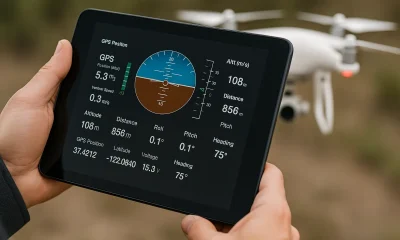

What is TLM (Telemetry) & How Does it Work?
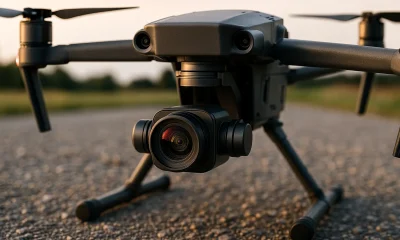

What is PTZ (Pan-Tilt-Zoom) & How Does it Work?
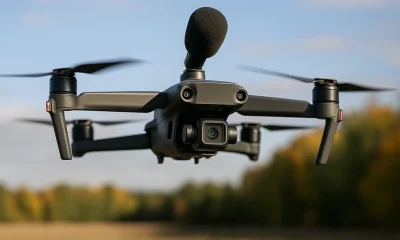

What is PAS (Passive Acoustic Sensor) & How Does it Work?


What is OGI (Optical Gas Imaging) & How Does it Work?
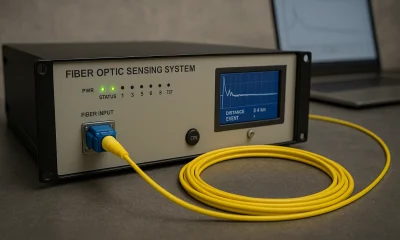

What is DAS (Distributed Acoustic Sensing)?
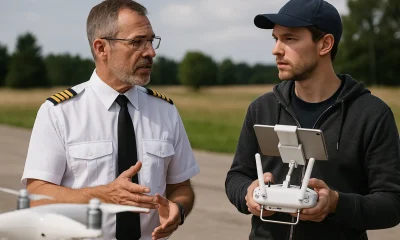

What is CFI (Certified Flight Instructor) & How Does it Work?